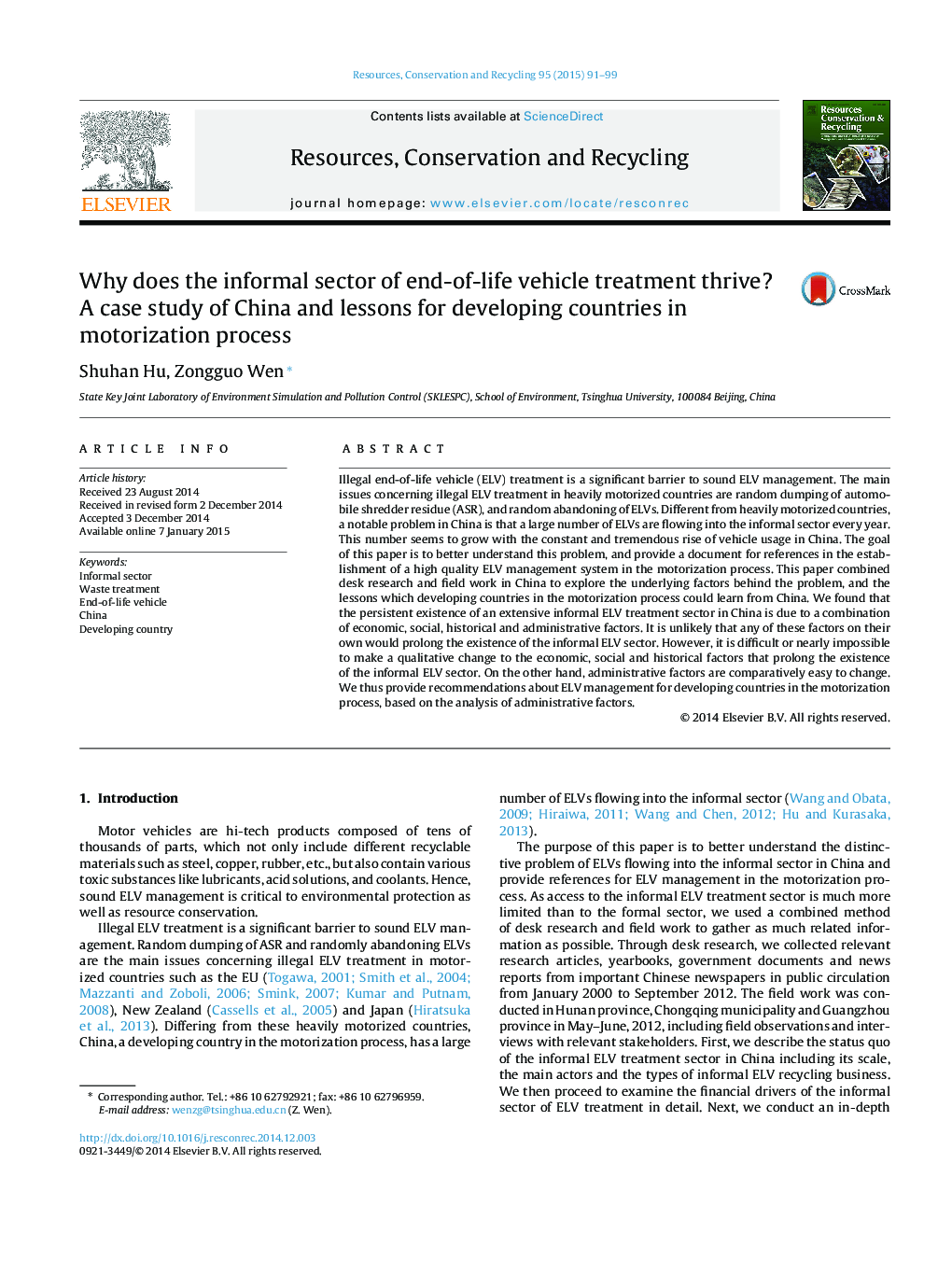| کد مقاله | کد نشریه | سال انتشار | مقاله انگلیسی | نسخه تمام متن |
|---|---|---|---|---|
| 7495214 | 1485694 | 2015 | 9 صفحه PDF | دانلود رایگان |
عنوان انگلیسی مقاله ISI
Why does the informal sector of end-of-life vehicle treatment thrive? A case study of China and lessons for developing countries in motorization process
ترجمه فارسی عنوان
چرا بخش غیررسمی درمان تدریجی خودرو در حال رشد است؟ مطالعه موردی چین و درس برای کشورهای در حال توسعه در روند موتوریزاسیون
دانلود مقاله + سفارش ترجمه
دانلود مقاله ISI انگلیسی
رایگان برای ایرانیان
کلمات کلیدی
بخش غیر رسمی، درمان ضایعات، وسیله نقلیه آخر عمر، چین، کشور در حال توسعه،
موضوعات مرتبط
مهندسی و علوم پایه
مهندسی انرژی
انرژی های تجدید پذیر، توسعه پایدار و محیط زیست
چکیده انگلیسی
Illegal end-of-life vehicle (ELV) treatment is a significant barrier to sound ELV management. The main issues concerning illegal ELV treatment in heavily motorized countries are random dumping of automobile shredder residue (ASR), and random abandoning of ELVs. Different from heavily motorized countries, a notable problem in China is that a large number of ELVs are flowing into the informal sector every year. This number seems to grow with the constant and tremendous rise of vehicle usage in China. The goal of this paper is to better understand this problem, and provide a document for references in the establishment of a high quality ELV management system in the motorization process. This paper combined desk research and field work in China to explore the underlying factors behind the problem, and the lessons which developing countries in the motorization process could learn from China. We found that the persistent existence of an extensive informal ELV treatment sector in China is due to a combination of economic, social, historical and administrative factors. It is unlikely that any of these factors on their own would prolong the existence of the informal ELV sector. However, it is difficult or nearly impossible to make a qualitative change to the economic, social and historical factors that prolong the existence of the informal ELV sector. On the other hand, administrative factors are comparatively easy to change. We thus provide recommendations about ELV management for developing countries in the motorization process, based on the analysis of administrative factors.
ناشر
Database: Elsevier - ScienceDirect (ساینس دایرکت)
Journal: Resources, Conservation and Recycling - Volume 95, February 2015, Pages 91-99
Journal: Resources, Conservation and Recycling - Volume 95, February 2015, Pages 91-99
نویسندگان
Shuhan Hu, Zongguo Wen,
